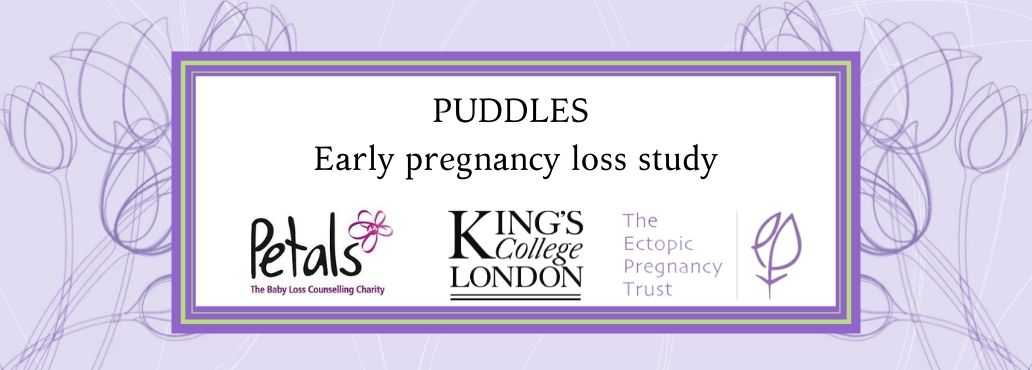
What was the study about?
PUDDLES (Parents who suffer pregnancy loss and whose babies die during the pandemic) is a global collaboration between the UK, Australia, Brazil, Canada, India, Italy, and New Zealand to understand the experiences of bereaved parents during the COVID-19 pandemic using qualitative interviews and analyses.
The collaboration conducted an investigation into women’s experiences of early pregnancy loss and care during the COVID-19 pandemic, in 2022. The Ectopic Pregnancy Trust worked on this project on early pregnancy loss and care during the COVID-19 pandemic with Petals (a baby loss counselling charity) and King’s College London.
Findings from the study
The full report was published today, 5 January 2024, and can be read here.
Overall, women valued the medical and surgical care provided by EPAUs during the pandemic. They found the service provided efficient care, despite the wider restrictions imposed on healthcare services. However, appropriate psychological recognition and support are lacking, making women feel their early pregnancy loss is less valued than later pregnancy losses and leaving them to seek sources of support on their own. Prioritising the implementation of recent research, government, and regulatory recommendations is crucial in ensuring women experiencing early pregnancy loss are being cared for appropriately.
A further report on preliminary findings on the experiences of care for women who suffered early pregnancy losses during the Covid-19 pandemic was published in August 2024. It concludes that “These findings provide important insight for the recovery and rebuilding of health services in the post-pandemic period and help us prepare for providing a higher standard of care in the future and through any other health system shocks. Conclusions made can inform future policy and planning to ensure best possible support for women who experience early pregnancy loss.”
Thank you
We would like to extend our thanks to everyone who took the time to participated shared their experiences so openly.
Read more about the research we have been involved in, and the networks and campaigns we are a part of in our collaborations section.
